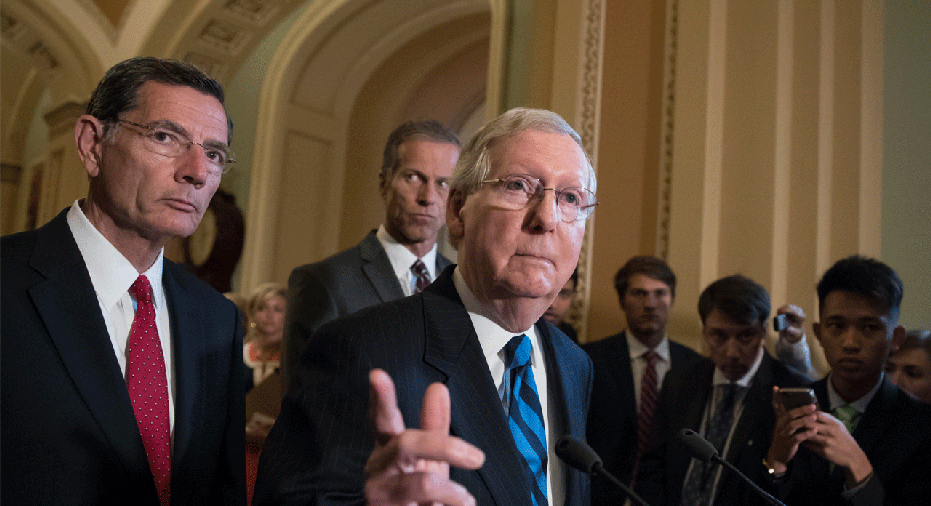White House, Congress shooting for debt ceiling deal in August as time & money wear thin

Senate Majority Leader Mitch McConnell (R-Ky.) said Congress would postpone its August recess by two weeks in order to make headway on a variety of legislative goals, including raising the debt limit, which he said he hopes will be raised before the third week in August despite widespread disagreement over exactly how that will happen.
“We've got defense authorization, we've got the debt ceiling, we've got the FDA user fee and other important legislation that we need to address and we simply, as a result of all this obstructionism, don't have enough time to address all of these issues between now and the originally anticipated August recess,” McConnell said during a press conference Tuesday. “Ideally, we would deal with the debt ceiling before the [new] August recess.”
However, as lawmakers also work out a revised bill to repeal and replace the Affordable Care Act, expected to be released Thursday, an unresolved debate over the debt ceiling could render the August timetable unattainable for Congress. While conservative members of the Republican Party in the House Freedom Caucus, and even Office of Management and Budget Director Mick Mulvaney, favor attaching spending reform riders to the debt limit increase as a way to move toward a balanced budget, U.S. Treasury Secretary Steven Mnuchin wants to pass a “clean” bill.
“When we've already committed to pay for things, we have to honor those commitments,” Mnuchin said during an interview on ABC’s “This Week” on Sunday. “And the debt limit is about paying for things that we've already committed to. It's different than the budget process.”
Mulvaney acknowledged last month that the administration had not yet decided how to move forward.
"There are various thoughts about how to get something passed, but I don't think we've settled on how to move forward yet," Mulvaney told reporters in mid-June. "Will it be a clean debt ceiling vote? Will it be a debt ceiling vote with some type of reforms attached to it? I don't think we've settled on that.”
In response to a question Tuesday about where he lands on the debate, McConnell offered little clarity: “We'll see. But the debt ceiling must be raised.”
However, time – and money – are wearing thin as days pass without a deal. Mnuchin offered the August recess as a deadline for lawmakers to strike an agreement, but has said the government had a “backup plan” should Congress fail to meet that timetable. He said last month the government could be funded into September, but refused to give a timeframe as to exactly how long funding would last without an agreement among Republicans and Democrats.
A deal will raise the United States’ borrowing authority in order to cover the annual deficit it accrues. President Obama temporarily suspended the debt ceiling until March 2017—since then the government has been paying its bills using “extraordinary measures.” The worry now is how much longer it can sustain those measures, which, as indicated by the administration, appears to be sometime in the early Fall.
A disunited front from the administration could complicate matters, considering raising the debt ceiling tends to be a contentious debate by nature. The government also has a tall agenda for the remaining summer months, including passing a bill to repeal and replace ObamaCare, as well as introducing a formal bill to overhaul the U.S. tax system. The administration has insisted it will have a tax bill by the end of the year, something businesses and the markets have counted on to fuel economic growth.



















